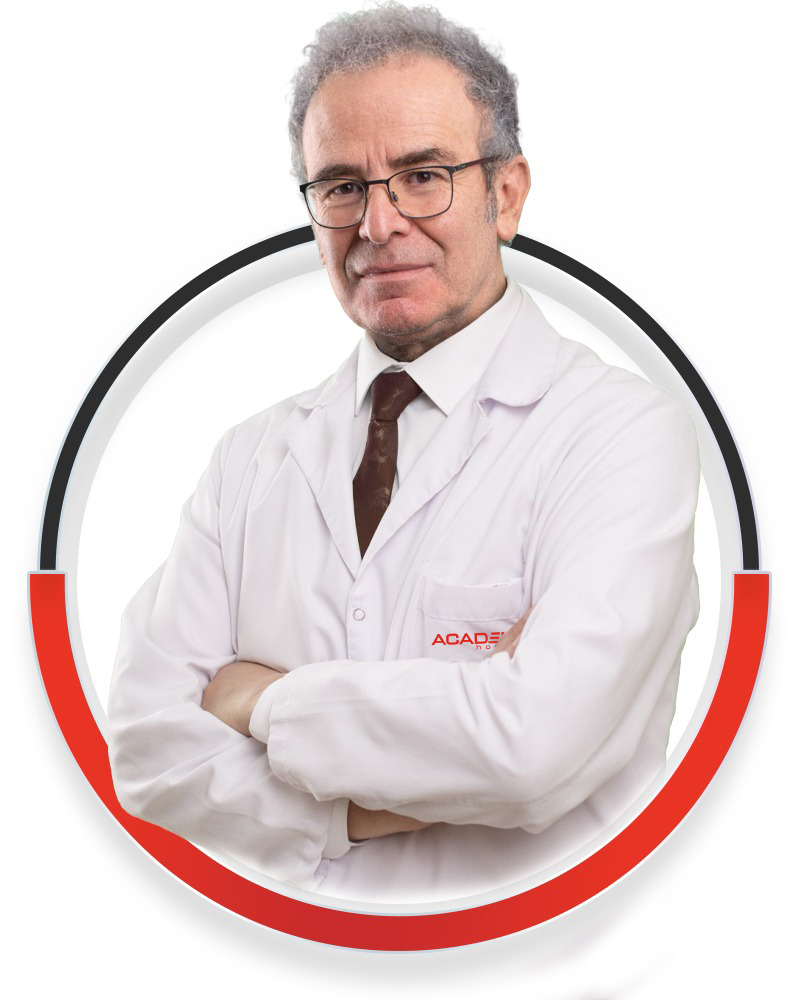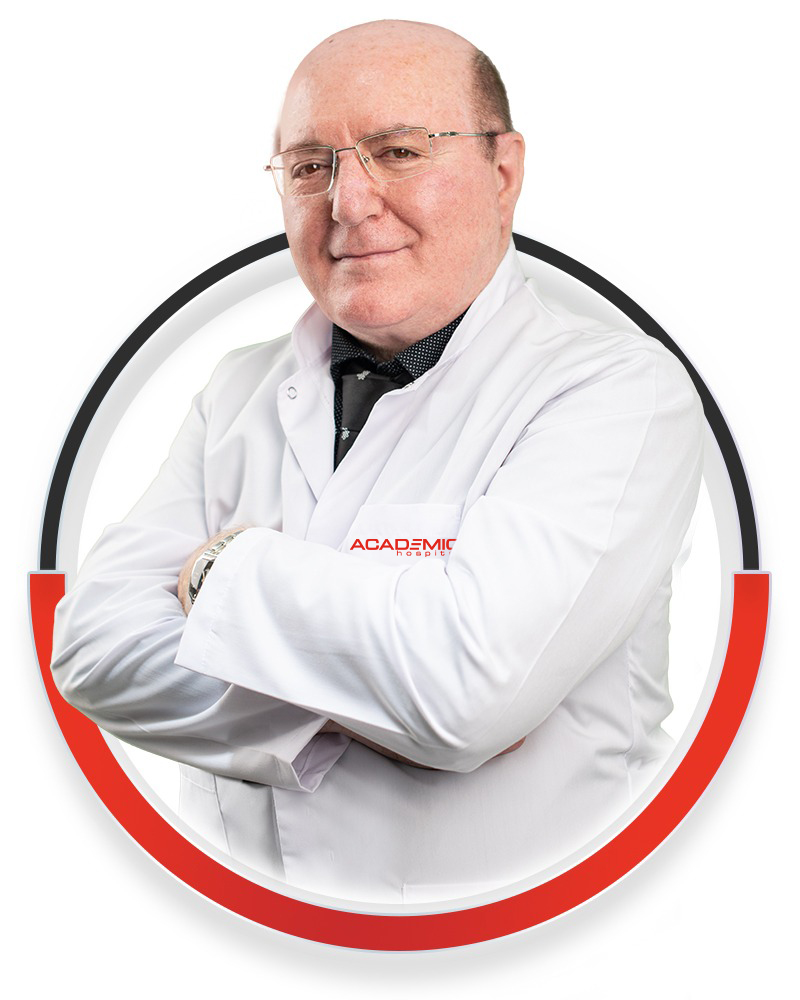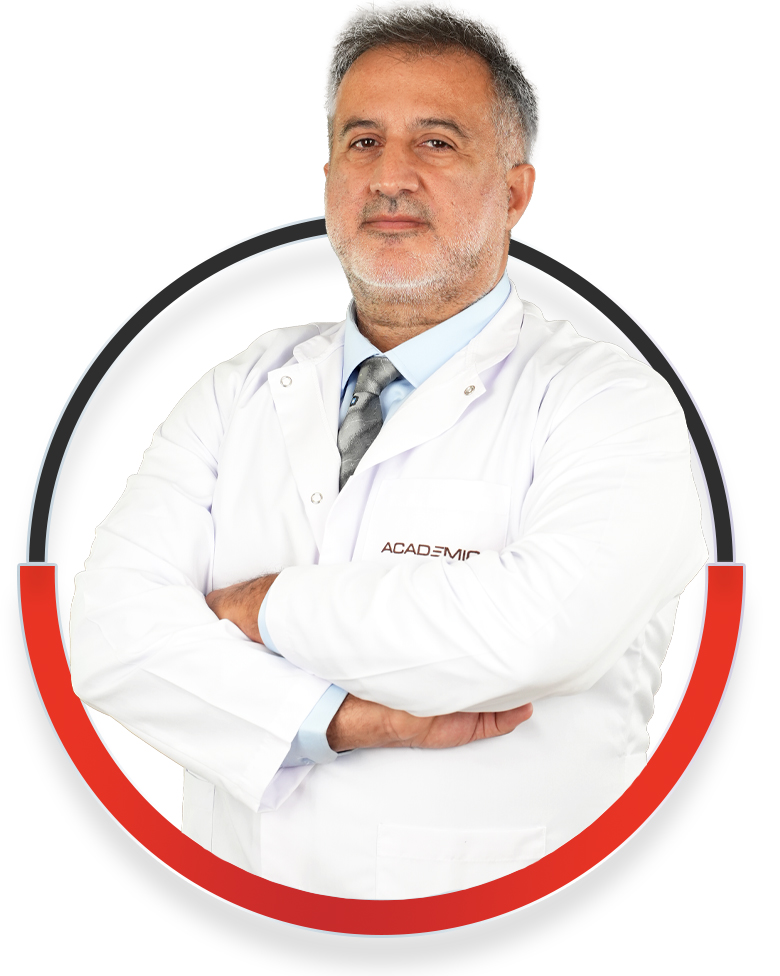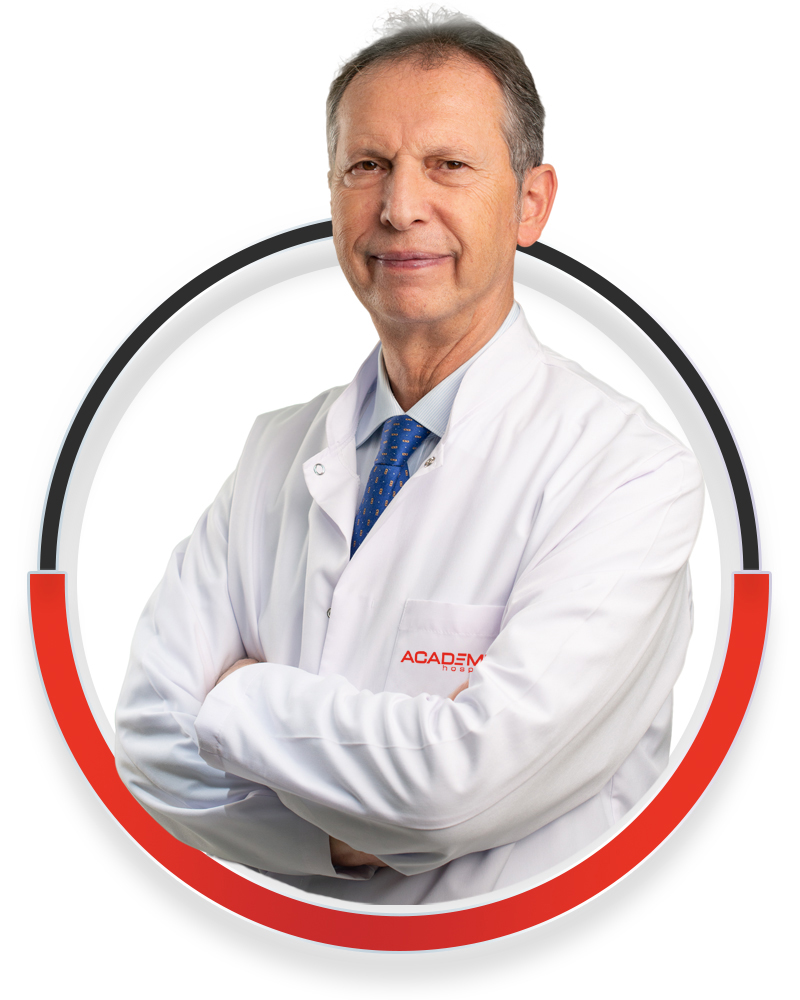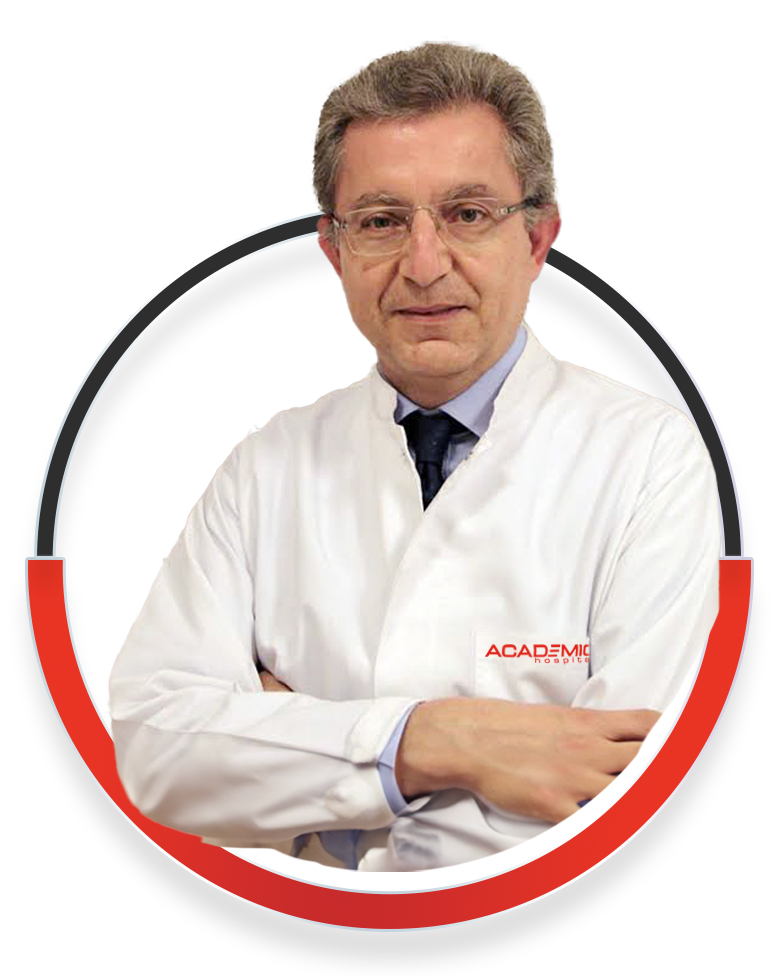The Heart: An Organ Beating for Life
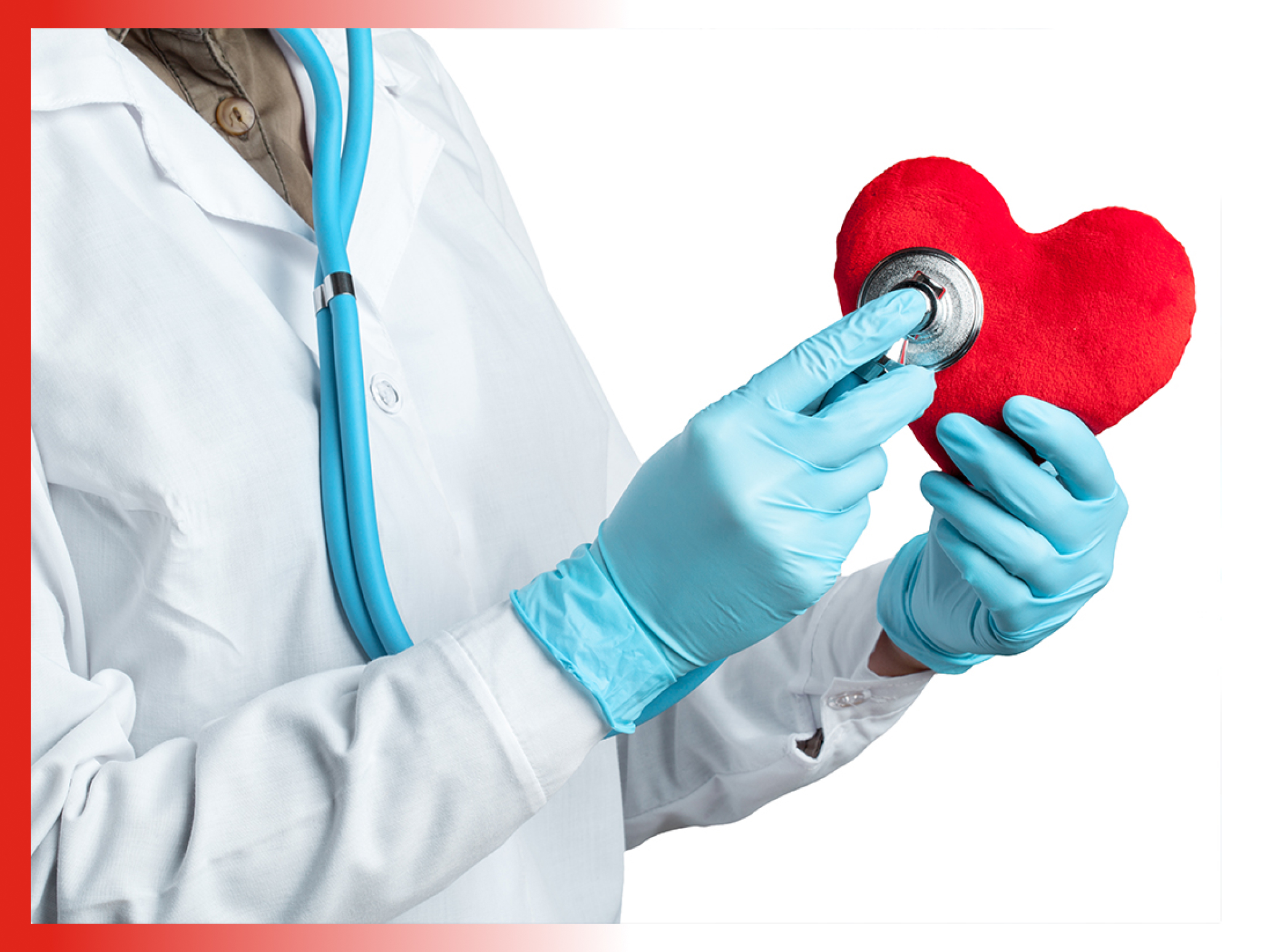
The heart is the vital organ of the body. For this reason, it is extremely important that it fulfils its function fully. Unfortunately, millions of people die today due to cardiovascular diseases. Turkey is the country with the highest prevalence of cardiovascular diseases among European countries. Cardiology is a branch of science that is concerned with the early diagnosis and treatment of all diseases related to the heart and the circulatory system.
Expert staff protecting the heart
Heart and circulatory system diseases are diagnosed and treated by a specialist doctor and an experienced healthcare team. Congenital and acquired heart diseases, coronary heart diseases, and all cardiological problems, especially hypertension, are diagnosed and treated at world standards. Check-up programs help with early diagnosis and treatment, especially in people at risk of heart disease.
Paediatric Cardiology Department is in service.
Academic Hospital treats both children and adults with heart diseases. In Academic Hospital's Paediatric Cardiology Department, diagnosis and treatment of congenital and acquired (post-occurring heart disease) diseases of all infants, children, and adolescents aged 0–18 are performed.
Which tests are performed at Academic Hospital's cardiology department?
Treadmill Effort Test
It is a very effective method for determining whether there is a cardiological disorder. During the exercise test, the patient is asked to walk on the treadmill. The speed and incline during this walk are adjusted by the physician. Treadmill test: It is an examination performed by the method of taking serial EKGs and measuring blood pressure while the person is walking at certain speeds on the treadmill. So, this way, the doctor knows if there is an irregular heartbeat. whether there is arrhythmia, various heart diseases, or hypertension.
Trans-thoracic Colour Doppler Electrocardiography
Echocardiography is the examination of the heart's internal structure and functions through sound waves (ultrasound). It is applied through an instrument (a transducer) that transmits sound waves. By applying the transducer to different parts of the chest wall, the walls and valves of the heart are examined in different positions.
Rhythm Holter (24 to 48-hour ECG recording)
It is a small device that attaches to a belt. Three to four wires are attached to the chest with the help of electrodes. While the person continues his or her normal daily life, the device loses the heart electrode during the scheduled time. At the end of the period, the device is removed, and the records are analysed on the computer. Thanks to this device, all rhythm disorders originating from the heart, such as palpitations, chest pains, and fainting sensations that are not seen during the examination but last for a short time during the day, can be detected.
Blood pressure Holter (24-hour monitoring of blood pressure)
It involves the measurement of the blood pressure of the patients at frequent intervals throughout the day and recording the blood pressure and pulse. With these measurements, an early diagnosis can be achieved in patients without pre-existing hypertension. With the blood pressure Holter, the blood pressure of the patients is measured at frequent intervals throughout the day, and their blood pressure and pulse rate are recorded during their activities during the day, during sleep, and during rest.
What Diseases Are Included in Cardiology?
Cardiological diseases are heart diseases that can be seen in all age groups, from very young to advanced age, and in both sexes. Heart-related problems may show symptoms primarily with shortness of breath, tightness in the chest area, and pain and numbness in the left side of the body and in the jaw. Heart failure, heart attack, coronary artery diseases, hypertension, heart rhythm disorders, heart valve diseases, aortic diseases, peripheral vascular diseases, and hyper- or dyslipidaemia are some of the most common cardiological problems.
Heart Failure
The main function of the heart is to pump the blood it needs throughout the body. But when the heart cannot fulfil this function due to some congenital or subsequent reasons, factors such as structural defects in the heart, vascular occlusion, high blood pressure, and damage to heart valves cause heart failure.
Heart Attack
A heart attack, also known as a myocardial infarction in medical terminology, is a risk that everyone, especially the middle-aged and elderly faces. It is more common in countries where smoking is high. In addition to smoking, hypertension and diabetes are other factors that cause heart attacks. It is manifested by a severe pain in the chest area and a feeling of not being able to breathe, and it is a situation that requires urgent intervention.
Coronary Artery Disease
The heart muscle is fed by vessels called coronary arteries. The hardening of these arteries or the increase in cholesterol levels due to unhealthy foods and the occlusion of the arteries cause the heart to not be fed enough. When the heart cannot receive enough oxygen due to occlusion and hardening of the arteries, it cannot function and may face the risk of heart failure.
Hypertension
One of the main factors affecting heart health is hypertension. Under normal conditions and in adults who have reached the age of 18, the maximum value should be 120 mmHg, or 12, and the diastolic value should be 80 mmHg, or 8. Blood pressure that is above these values can lead to many diseases, especially of the heart.
Heart Rhythm Disorders
The fact that the heartbeat is less or more than normal is also a harbinger of arrhythmia, or heart rhythm disorders. tachycardia, where the heart beats too fast; if it beats too slowly, it is called bradycardia.
Aortic vascular diseases
The aorta is the body's largest artery. The enlargement, rupture, or narrowing of this vessel causes the aorta to fail to function.
Atherosclerosis
Excessive cholesterol exposure causes a variety of diseases in the body. Cholesterol, which accumulates in the vessel wall over time, causes the vessel to harden and lose its flexibility. This can lead to many heart-related diseases.
Peripheral vascular diseases
They are blockages in the arteries that occur as a result of hardening of the veins for various reasons.
Valve Diseases
It is the loss of function of the valves in the heart that work all day by opening and closing. As can be seen from birth, participatory features, old age, and various infections are among the factors that prevent the heart valves from working.
Hyperlipidaemia and dyslipidaemia
It is a disease directly related to the person's eating habits. Higher levels of cholesterol and blood lipids may be a harbinger of various heart diseases in the long term. For this reason, it is very important for people to stay away from high-fat foods and do regular walking and sports.


